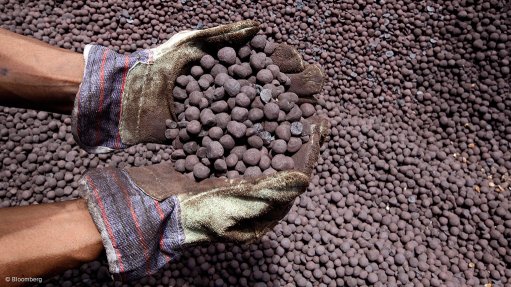The basis for good judgment: can we really know?
Over the past decade, I have been engaged in an inquiry into the nature of judgment, given that I have had the privilege of setting up new entities and programmes over the course of my two-decade career.
I will attempt to capture some thoughts from these experiences in this column as time goes by.
An area that has intrigued me the most – as those who have been in leadership and entrepreneurial start-up positions will appreciate – is the challenge of decision-making in times of uncertainty.
This has implications for organisations: how executive directors are chosen, boards composed and expert advice sought, as well as what the learning culture of the organisation should be in order to gather pearls of wisdom, as it were.
Simply put, no perfect decision exists in an imperfect world.
In a complex world, past experience counts for little at times. What’s more, more data may not tell you which way to go, and neither can outcomes be assured. Even the best of information and knowledge make one no wiser.
One is also aware that placing faith in reason and wise counsel may not be the sole factor for good outcomes. Other forces that are not within our control could also be behind the success of outcomes. We may, in the stories we tell others and ourselves, put everything down to group or individual ingenuity but, quietly, we may be all in praise of luck and good circumstance.
The desire to understand the basis for good judgment has led to a wide range of reading and experiments on the issue of decision- making in times of uncertainty.
Reading has taken me from philosophical pragmatism, particularly the works of William James and John Dewey, where the idea of truth and how we understand the world is premised on the notion that what one knows is dependent on a variety of processes: intuition, inductive knowledge or experiment and experience. Their main contention is that there is always a chance that new contexts and facts will offer new truths – everything we can know of the world is contingent, never permanent.
Wise decisions are also premised on the idea that you can isolate personal biases and anxieties, group-think (many institutions suffer from this and it has been extensively studied, if you consider the works of Pathenope Bion and William Whyte) and not to discount personal ego and honour that can interfere with the ability to make commonsensical and impartial judgment calls.
The entire field of judgment today is growing in influence through the works of a number of thinkers in psychology, behavioural economics, network theory and, believe it or not, the growing interest in ‘pseudo’ science.
Network theories describe why some ideas and famous people have succeeded, whereas others with similar ideas and gifts have not succeeded. In most cases, network effects mean everything for success rather than just the special gifts or judgments of talented people.
Past IntuitionsThe works of Daniel Kahneman and others show that intuition has relevance in certain circumstances where familiar patterns and learning from these do provide a basis for good decisions where the domain of experience has been encountered before, but where circumstances and conditions are completely different, past intuitions may not yield good forms of judgment to deal with a new crisis.
‘Pseudo’ science studies the tendency of experts to hide their lack of real-life experience in glittering data, language and predictions of promising outcomes – the proverbial power-point emissary industry.
The essay of US philosopher Harry Frankfurt has inspired a new field of inquiry.
‘Pseudo’ science seems quite extensive these days and will be pronounced in a world that has become more and more uncertain and where traditional scientific and other authority is on the wane.
Extraordinarily, society grows its sources of ‘good’ judgment from the latest celebrity (I do not imply popstars only; celebrity experts are also included) often with no evident knowledge or experience in the area where advice is being sought. One supposes that all this is also given a lift, given how reason can be so influenced by bias and the effects of social media on knowledge and judgment.
Such expertise is a product of the halo effect, where often profound gifts in one area seem to suggest that those with such gifts may well have hidden gifts, and access to special knowledge in other domains.
The works of Nassim Taleb on risks and long-tail events are a counter to the whole field of risk assessments, scenario planning and prediction. As Philip Tetlock’s studies on predictions have shown, experts are as good at predicting events as complete novices.
One must also consider the revival of stoicism, which Roman leaders relied on quite extensively to deal with the challenges of day-to-day reality. Stoicism and hard-nosed realism go hand in hand.
Seneca, the famous adviser to Nero who ended up being exiled, practised and wrote on the art of stoicism. Like pragmatism, stoicism is a posture one holds with respect to practical issues in life. Stoicism teaches acceptance of reality as it is, which can be changed only if one appreciates one’s context and power to change things, and accept that there will be disappointments as one goes along.
This is perhaps why Chinese philosophy, including the philosophy of Sun Tzu and others, is aphoristic and filled with parables dealing with direction, not detail.
These philosophies are prods for reflection and suggestions for ways of thinking through an issue instead of having the predisposition to hover over detail where the future contexts are bound to be quite different.
The whole field of wisdom science is exploding, largely because most people recognise that reason and having access to the best data are insufficient ingredients for good judgment. I am reminded of the fascinating thesis of Igor Grossmann, who has turned an ancient philosophical inquiry on the sources of wisdom into a scientific method.
There is always a need to dream high but there is a warning: do not dream without brakes of realism in place.
Comments
Announcements
What's On
Subscribe to improve your user experience...
Option 1 (equivalent of R125 a month):
Receive a weekly copy of Creamer Media's Engineering News & Mining Weekly magazine
(print copy for those in South Africa and e-magazine for those outside of South Africa)
Receive daily email newsletters
Access to full search results
Access archive of magazine back copies
Access to Projects in Progress
Access to ONE Research Report of your choice in PDF format
Option 2 (equivalent of R375 a month):
All benefits from Option 1
PLUS
Access to Creamer Media's Research Channel Africa for ALL Research Reports, in PDF format, on various industrial and mining sectors
including Electricity; Water; Energy Transition; Hydrogen; Roads, Rail and Ports; Coal; Gold; Platinum; Battery Metals; etc.
Already a subscriber?
Forgotten your password?
Receive weekly copy of Creamer Media's Engineering News & Mining Weekly magazine (print copy for those in South Africa and e-magazine for those outside of South Africa)
➕
Recieve daily email newsletters
➕
Access to full search results
➕
Access archive of magazine back copies
➕
Access to Projects in Progress
➕
Access to ONE Research Report of your choice in PDF format
RESEARCH CHANNEL AFRICA
R4500 (equivalent of R375 a month)
SUBSCRIBEAll benefits from Option 1
➕
Access to Creamer Media's Research Channel Africa for ALL Research Reports on various industrial and mining sectors, in PDF format, including on:
Electricity
➕
Water
➕
Energy Transition
➕
Hydrogen
➕
Roads, Rail and Ports
➕
Coal
➕
Gold
➕
Platinum
➕
Battery Metals
➕
etc.
Receive all benefits from Option 1 or Option 2 delivered to numerous people at your company
➕
Multiple User names and Passwords for simultaneous log-ins
➕
Intranet integration access to all in your organisation


















